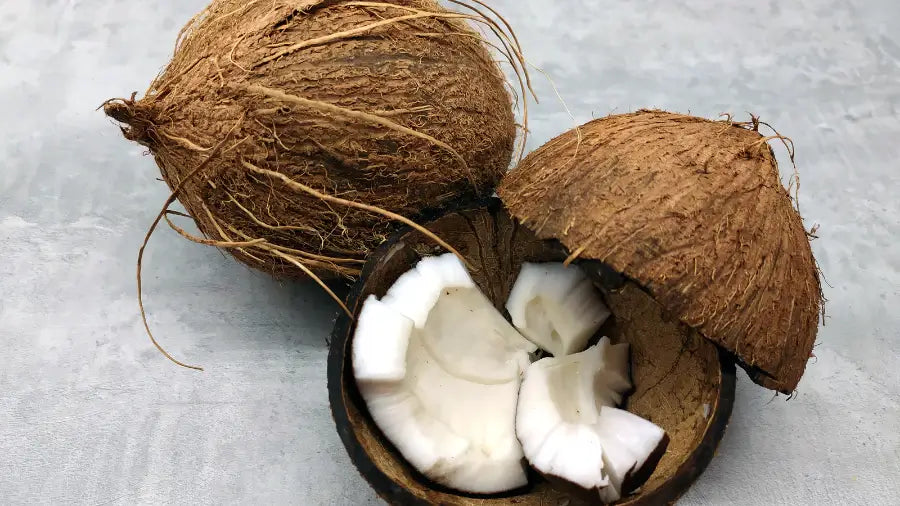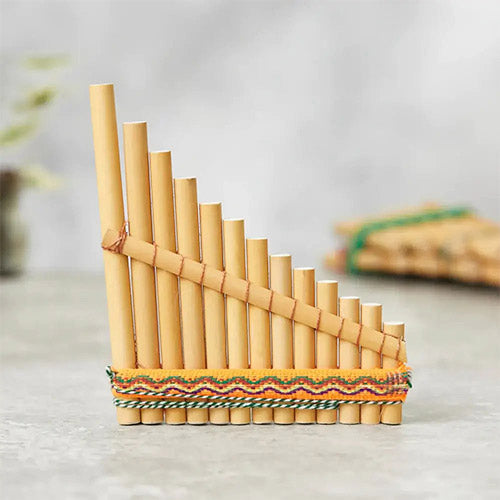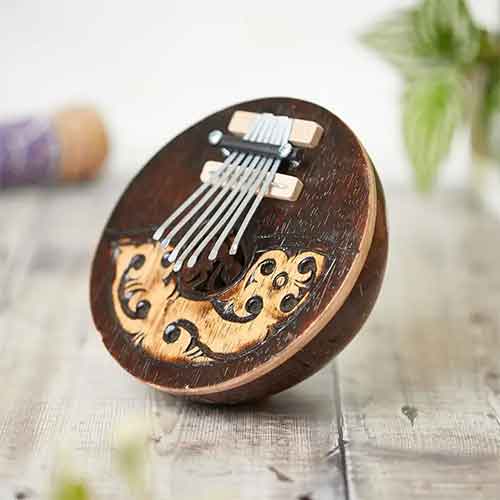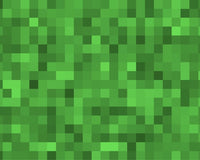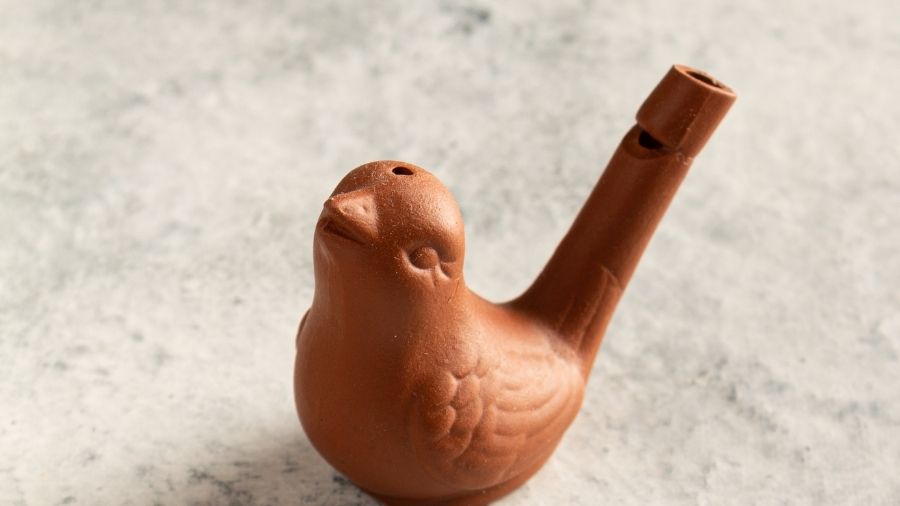There are many different ways to make coconut bowls and each way depends on the tools that you have available. Assuming that you have these basic tools, lets proceed. If you don't want to make your own or do not have the tools to make it. You can purchase high quality coconut bowls online.
Remove outer husk
Start by removing the husk from your coconut, you can use a chisel for this. Carefully scrape away chunks of the outer husk to reveal the shell. Then using an 80 grit sandpaper remove excess husk from the outer shell.
Drain coconut water
Using either a coconut opener tool, screwdriver or drill, carefully go through the coconut carpels so that you can drain the coconut water inside.
Flatten the base of the bowl
On the side without the holes you will need to slightly flatten the coconut shell to be the base of your bowl, this is necessary to prevent the bowl from moving around. This can be achieved easy with a belt sander or if you haven’t got one you could do it with some regular sandpaper, however it may take longer to do.
Draw the bowl

Next you will want to mark out your bowl with a pen. Many coconut bowl makers use a homemade tool that features a pen taped to a block of wood, to get the perfect bowl you simply spin the shell on a flat surface.
Cutting the bowl
To cut the shell into the shape of a coconut bowl, the best way to do this is by placing a Dremel multi tool into a table vice. Using cut resistant safety gloves carefully spin the coconut bowl over the multi speed blade to cut along the line.
Remove the coconut meat
Carefully pry open the shell, scrape out all the coconut meat using a hand coconut grater or blunt butter knife.
Clean, dry and sand
Once it’s all removed you will want to clean it, dry it and then sand the inside, outside and edges of the coconut bowl with an 80 grit sandpaper, then 240 grit, then finally 400 grit, the coconut bowl will become darker.
Finishing the coconut bowl
For a perfect finish, using a clean cloth rub the bowl with a little food grade mineral oil, leave it for 20 minutes between coats, and apply 3-4 coats before using.
Coconut Bowls: Frequently Asked Questions

Do coconut bowls have a flat base?
The coconut bowl bottom has a slight curve, however during the processing of the shell, they are sanded to have a flat bottom so that they sit sturdy on a table.
Are coconut bowls suitable for hot food?
Coconut bowls don't like really hot food as it can cause them to crack, we recommend using your coconut bowls to eat room temperature and cool foods.
Where can you buy coconut bowls?
It’s important to know that not all coconut bowls are equal and will vary in quality. The best type of coconut bowl comes from a coconut variety that has a strong thick shell. These typically come from Indonesia or Vietnam and are far superior which is why we sell these coconut bowls.
Benefits of coconut bowls?
prevents millions of coconut shells being tossed into landfill every year. On top of that they are also completely natural, BPA free, toxin free, plastic free. They are a safe option for you, they are eco friendly, and are sustainable to the environment.
Coconut bowl care instructions
When it comes to taking care of your coconut bowls to ensure longevity, you should make sure that you don’t put them in the dishwasher, wash in very hot water or soak them for a long time. As this could cause them to crack or could even soften the shell making it vulnerable to bacteria and mould.
Instead, wash them by hand with warm soapy water, once dry we recommend oiling them with a little oil from time to time. It’s worth noting that the bowls are suitable for cool or warm foods and shouldn’t be used for holding hot foods.
Where are coconut bowls manufactured?
Not all coconuts are equal and there are many different types of coconut, for example coconuts grown in Indonesia are grown for the shells superior durability due to the shell being thicker. There are also coconuts that are grown from organic farming.
Coconuts and the bowls are grown and manufactured throughout Asia with the majority of products being handmade by local artisans in Vietnam and Indonesia. With that being said coconut bowls popularity is rising and we are now seeing creators all around the world especially in Europe.
What is a jumbo coconut bowl?
A jumbo coconut bowl is simply a larger than usual coconut bowl, in fact it’s approximately 30% bigger which makes it more suitable for salads and main meals. The term jumbo coconut bowl means that after harvest, the biggest bowls are selected based on their large jumbo size.
What can coconut bowls be used for?
You can use a coconut bowl for anything that you can use a regular bowl for. The obvious option is food, but aside from that your bowl could be used for storing things, or you can think right outside of the box and use it for an unusual plant or even to enhance your home decor. The only limit is your imagination.
Up next: How to Make A Coconut Pot

